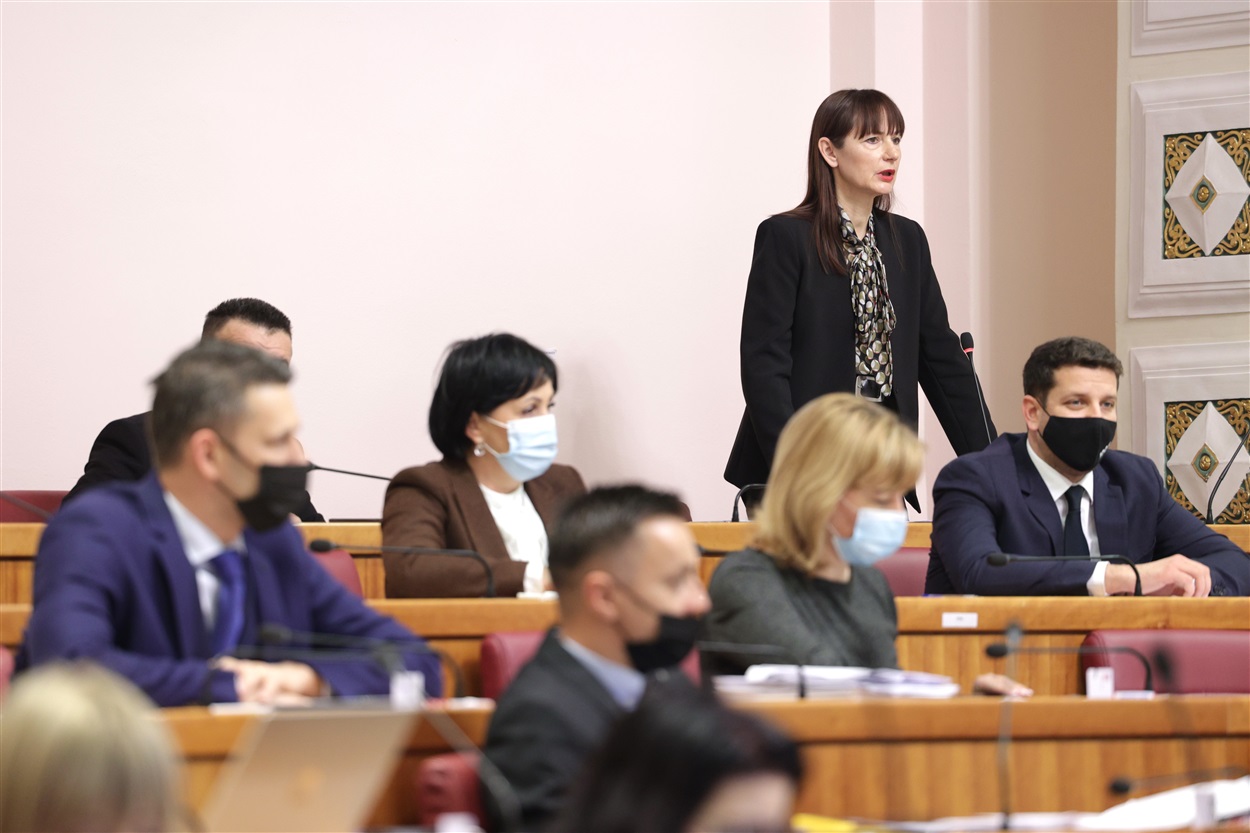
Zagreb - Members of parliament were agreed on the need to protect people reporting irregularities during a debate on a bill on the protection of whistleblowers on Tuesday, with opposition MPs citing the most famous whistleblowers and their fate.
What in reality happens to whistleblowers is best evidenced by the cover of the Nacional weekly, said MP Dalija Orešković, a reference to Maja Đerek, a former employee of the State Property Agency, who spoke up about irregularities at the agency.
"That case indicates serious breaches of office... by a number of senior state officials, starting from Minister (of the Interior Davor) Božinović, (PM's chief of staff Zvonimir) Frka Petešić, and the head of the State Property Agency," Orešković said, telling Parliament Speaker Gordan Jandroković that he was not mentioned in a positive context in the Nacional article either.
"If Nacional's allegations are true, we are witnessing a realised conflict of interest due to which, if state bodies had the will, the entire government should fall," she said.
Bridge MP Marin Miletić said even though the relevant legislation was good, in terms of protection of whistleblowers, there was chaos on the ground.
A number of whistleblowers have reported irregularities and ended up jobless, he said, noting that Croatia loses HRK 60 billion a year to corruption.
He called on Justice and Public Administration Minister Ivan Malenica to protect whistle-blowers.
Minister: New law brings numerous improvements
Minister Malenica said that the new law on the protection of whistleblowers would bring numerous improvements.
The procedure to report an irregularity is facilitated, it can be done either verbally or in writing, including modern IT tools and applications, whistleblowers will have the right to court protection, compensation, protection of identity and confidentiality, and primarily legal aid, he said.
It will be possible to report an irregularity via a person at one's employer who is in charge of such complaints, through external bodies, that is, ombudsman, as well as by going public with an irregularity, the minister said.
Željko Pavić of the Social Democrats wanted to know how the state will help a whistleblower survive the period from reporting an irregularity, which often includes dismissal, to a court decision.
The person reporting an irregularity has court protection in such situations, the procedure before the local court is swift, and a decision on a temporary measure must be made within eight days, the minister said, admitting that compensation or some other form of payment to whistleblowers had not been considered.
Urša Raukar Gamulin (Green-Left Bloc) asked why the new law did not envisage psychosocial support to whistleblowers while her colleague Vilim Matula wondered if the new law would also protect the police officer who had warned about the unlawful conduct of his colleagues towards migrants.
Malenica said that he would not comment on specific cases and he left open the possibility of amending the law, at some point in the future, to envisage psychosocial support for whistleblowers.
"I am not familiar with details regarding the HNB so it is difficult to answer that question," Malenica told MP Vesna Vučemilović, who asked if the person who had revealed information about insider trading by employees of the central bank had committed an offence or was just a whistleblower.
HDZ MPs welcomed the bill, with MP Damir Habijan suggesting that fines for employers who try to prevent a whistle-blower from reporting an irregularity be determined as a percentage of their revenue.